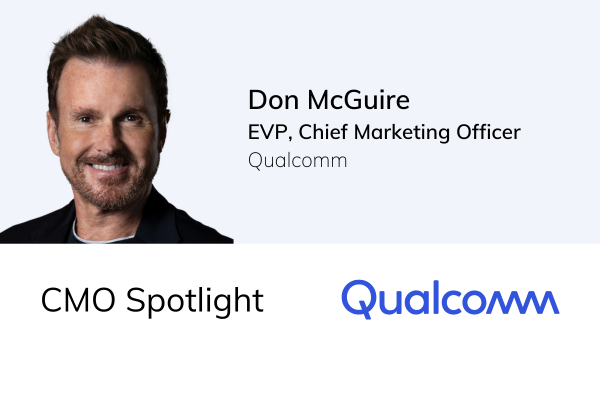The Power of the Utilities Industry
At Setup, we keep an eye on current marketing trends and behaviors. To keep our finger on the pulse of everything marketing, we’ve asked a number of industries about their predictions and focuses. Among those industries, we recently spoke with experts in the Utilities industry to hear their thoughts.
The following contributions are from marketing leaders at Touchstone Energy® Cooperative, Inc. and Modo Modo Agency, which works with several Utilities clients.
“The utility space is continually changing to meet customer needs. Explosive changes in technology have allowed consumers more control and convenience over their energy use.”
Q1: What innovative changes are happening in the utilities space? What changes made are going to remain permanent moving forward?
Electric Cooperatives
“Electric cooperatives are expanding into broadband access,” Mary Ann Cristiano, the Senior Director Consumer Marketing of Touchstone Energy® Cooperative, Inc. shared. Electric cooperatives are membership organizations of either a private or nonprofit company or customers. Cristiano clarified that it “means they are member-centric, striving to provide the best experience — and are also members of their community.” Because the elected members have a stake in the decisions, their policymaking tends to be service-based and community centered. According to MCR Safety, Electric Cooperatives power over 20 million businesses, homes, and schools, and are growing increasingly more popular.
Smart Technology
Smart technology contributes to sustainability and convenience. Cristiano shared, “Smart speakers and smart thermostats were at the forefront of allowing customers to easily adjust their comfort level and pay their bills.”
She continued, “Adopting smart home technology is prevalent in utilities and, according to loT Business News, 35.6% of North American homes are identified as Smart Homes. Smart speakers, thermostats, appliances, light bulbs all fit into the Smart Home category. Consumers want control over their lives and being able to change the temperature or turn on the lights remotely is highly appealing.”
In addition to the convenience that smart technology provides, Moira Vetter, the CEO of Modo Modo, explained that consistently pursuing the use of and innovating smart technology contributes to the pursuit of a cleaner, more sustainable world. She said, “For the last decade, smart construction/renovation combined with municipal and societal goals for clean, efficient energy have transformed residential and commercial electrical power, gas, IT/telecom, water, road infrastructure, and more. The degree of change—and the amount of potential risk associated with miscalculations—require utilities to be much more than good corporate citizens. They must be innovators to ensure their communities get continuous and efficient utility delivery, no matter what the future holds.”
Bundled Services
Cristiano observed that bundled services have returned in popularity. Although cable companies have offered this for years, Cristiano said they are now being offered with your electric provider and recommended that, “if you already have a reliable relationship with your utility, it makes sense to have your broadband access with them, too.”
Q2: Are there other industries or companies outside your own that you have looked to for inspiration and why?
“Convenience is important to consumers, and the pandemic increased our reliance on things being simple, fast, and convenient.”
Cristiano listed the admirable qualities companies encompassed in the last year that made them successful and that she tries to emulate in her business moving forward:
Anything that makes a consumer’s life easier is a benefit. The company we all purchase from that delivers to your door -- sometimes same day -- has been a leader in changing how we do business and what customers expect in terms of efficiency and timeliness. Convenience is important to consumers, and the pandemic increased our reliance on things being simple, fast, and convenient.
Companies that have a brand purpose and give back to their communities allow the consumer to feel good about their choices. I recently found a retail company that plants two trees in the rainforest for every shoe you purchase, and it’s a completely sustainable product. Their branding focuses on the benefit to the environment. The message is clear, concise, and compelling.
Restaurants that pivoted during the pandemic to offer take-out orders. They shortened menus and changed their dining policies to accommodate COVID restrictions. Some changed their focus entirely from fine dining to meal kits or meal trays to feed families. Being flexible and seizing an opportunity allows you to stay in the game when things change.
Q3: What aspects of marketing for the industry are unique from other industries?
Vetter articulated the challenges that make the Utility industry stand out. “One of the things that makes the utility industry difficult for marketing professionals is the debate over whether utilities are services, commodities or rights,” she stated.
She continued, “When people (residents or commercial customers) expect a level of service at little or no premium, it can be difficult for utilities to properly message around their strategic initiatives and performance. Also, many utilities are co-operatives or strategic partnerships, which requires collective messaging/positioning and close collaboration to deliver on promises. Add the wrinkle of being a municipal, government or quasi-government organization to the need for collaboration and agility and it is not only harder to deliver, but makes it harder to be believed by a sometimes skeptical or divided public.”
Q4: What lessons can other industries learn from the utilities space?
Communication + Reliability
Utility companies need to act quickly and effectively to inform their customers when there are outages. Providing detailed and regular communication with customers may benefit other industries.
Cristiano shared, “Reliable service is important to customers, and utilities experience various weather events that can impact their ability to provide service. Other industries can learn from utilities that respond well during a weather crisis with communication on various platforms regarding when service will be available. We have one cooperative where the CEO went into the community and created timely videos that were posted on social for their members to get first-hand info on what was happening to get service back.”
Transparency
With proper communication comes transparency. Cristiano mentioned that the pandemic led to an increase in digital use which, in turn, led to an increase in security. Security concerns require companies to be more upfront about where the consumer’s data is being utilized in order to create more trust and help the consumer adopt newer technologies.
It’s about Change
The Utilities industry opens doors to themes that are much bigger than any leader or company. It’s about the universal need for a better world that is ultimately beneficial to all. So nothing can be “surface-based,” necessarily. Vetter stated, “The themes of sustainability, smart grid, resiliency (think adverse weather events and recovery), and digital transformation that leading corporations focus on will continue to drive the narrative. However, these themes can’t simply be subheads in an annual report. These ideas are things that not only investors or co-op owners care about, but things that consumers, building owners, and increasingly the youth care about and want to see in practice. Leading utilities not only have talking points around these themes, but they are building compelling stories with their citizens to show how they are leading the movement.”
Innovation and consumer preference and convenience take precedence in order to obtain success in any industry, and the Utilities industry is consistently working towards that. As an industry that impacts people’s livelihood and day-to-day on the regular, there is not only pressure, but a need to strive to do good and make the world a better place with their efforts.
































Setup CEO + Founder, Joe Koufman, sat down with Gabie Boko, the Chief Marketing Officer for NetApp, to talk about staying consumer focused, being bold, and loving the LEGO brand.